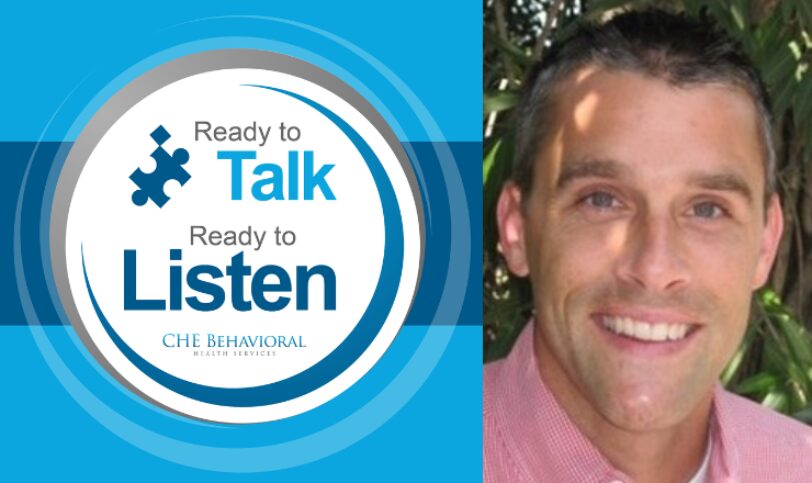
On this page
Suicide is a serious public health problem that can have lasting harmful effects on people, families, and communities. We need to understand suicide and what preventative measures to take.

Charles Westfall is the Clinical Manager of the adult intensive outpatient services for Sharp Mesa Vista Hospital, the largest provider of inpatient and outpatient behavioral health services in San Diego County. In his role, Charles sits on the suicide prevention steering committee, supported by hospital-wide initiatives that target zero suicides.
In addition to his administrative and clinical roles, Charles is on the graduate school faculty in the counseling and marital and family therapy department at the University of San Diego. He also serves as a board member for the Association for Ambulatory Behavioral Healthcare, focusing on best practices for hospital-based services. Charles is the Co-chair of the San Diego County Suicide Prevention Council (SPC), whose mission is to prevent suicide and its devastating consequences through a collaborative community-wide effort. He received his bachelor's in philosophy, a master's in theology and another in marital and family therapy.

Here’s a glimpse of what you’ll learn:
- The definition of suicide and common myths
- Is suicidal ideation chronic or temporary?
- Does a person have to have a mental health condition to become suicidal?
- What are some of the causes and risk factors that can lead to suicide?
- The main theoretical underpinning that mental health professionals rely upon when trying to understand someone's potential risk
- What are thwarted belongingness and perceived burdensomeness, and are they interrelated?
- What are the protective factors that can help in preventing suicide?
- The warning signs and indications to look for to help determine if someone is suicidal
- What to do once you notice someone is suicidal
- How to reduce or delay the risk of someone dying by suicide
In this episode…
Suicide is a serious public health problem that can have lasting harmful effects on people, families, and communities. We need to understand suicide and what preventative measures to take. So, what do we need to know, and what can we do?
Many people are potentially at risk of dying by suicide. But suicide is preventable, and there are important things to know to contain this public health issue. It's important that people aren’t afraid to speak up about suicide, talk about mental illness, or encourage treatment for a person in need. Reducing the stigma, creating a safe place where people can share stories, and helping to promote awareness around suicide prevention and treatment are significant first steps.
In this episode of Ready to Talk, Ready to Listen, Dr. Larkin Hoyt sits down with Charles Westfall, the Clinical Manager of the adult intensive outpatient services for Sharp Mesa Vista Hospital, to discuss what we need to know about suicide. Charles explains the common myths around suicide, the risk and protective factors that can cause or prevent suicide, the warning signs to look for, and what to do once you think someone is suicidal.
Resources Mentioned in this episode
- CHE Behavioral Health Services
- Call CHE: 888-515-3834
- Sharp HealthCare
- Sharp Mesa Vista Hospital
- Call Sharp Mesa Vista Hospital: 858-360-8044
- Charles Westfall on LinkedIn
- National Alliance on Mental Illness (NAMI)
- Trans Lifeline
- The Trevor Project
- Centers for Disease Control and Prevention (CDC)
- David Émile Durkheim
- Edwin S. Shneidman
- Roy F. Baumeister
- Thomas Joiner on LinkedIn
- Why People Die by Suicide by Thomas Joiner
- PATH WARM
- San Diego County Suicide Prevention Council (SPC)
Sponsor for this episode
This episode is brought to you by CHE Behavioral Health Services.
CHE offers comprehensive mental healthcare solutions, including in-person and telehealth psychology and psychiatry services.
Listen: Americans are experiencing greater stress, anxiety, and depression than ever before.
CHE’s mission is to provide access to high-quality care and help individuals improve their quality of life and emotional well-being.
We have over 850 professionals committed to providing gold-standard and evidence-based behavioral healthcare.
To learn more about CHE or to book an appointment, please call us at 888-515-3834 or visit CHEservices.com.



